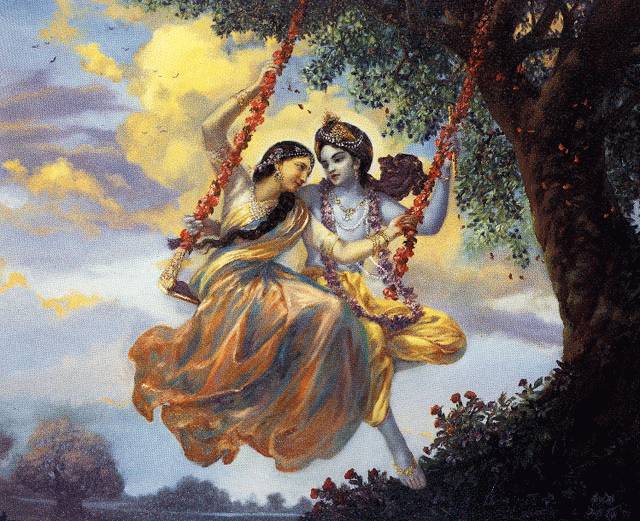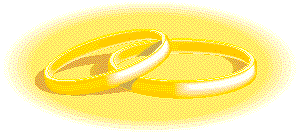

Synastry literally means, 'a bringing
together of' (syn) and 'the stars' (aster), it is a little complex process,
but for the minute piece of information taken reveals the resultant process
to be enlightening, and revealing. Astrological sysnastry for marriage
is truly a great material science, which through 'shastric' reference proves
itself unarguably informative towards the analysis of a couples possible
future together. Like the Sun and Moon, and other luminaries which are
involved the process can be deeply illuminating, and enlightening. Where
there is Sun-like illumination on any subject, the shadow of ignor-ance
cannot be. I have spelt ignor-ance in this way for in itself it is illuminating.
Ignoro is the Latin for to ignor, or to be ignorant of certain facts, as
in an ignoramus. The prefix 'In', means not, and 'gnarus' means knowing.
(originating in the sanskrit word jna / gna meaning knowledge, to know)
In this world today of many great discoveries still there is a whole spectrum
that people do not know. Although I would like to add, it is there if one
takes the time and care to research.
 Have
You Found Your Soul-mate ?
Have
You Found Your Soul-mate ?
What I have seen happening in my
many years as a priest is a swaying in the rise and decline in
people accepting the marriage rites.
The number of marriages registered in New Zealand reached
a 30 year low last year, statistics
N.Z., said falling from 22,056 in 1993 to 21,858 in 1994.
However, remarriage more than doubled
in the last 25 years (Rural News, May 22nd 1995).
The Mysterious Force:
"Marriages (at least good ones)
are made in heaven. That's the nearly worldwide sentiment about the destiny
of relationships, whether you ask the Matyos of Hungary, who believe a
'mysterious force, Love, draws the couple to each other', or hollywood's
Alan Rudolph, whose Made in Heaven film characters - one recently dead,
the other an unborn virgin soul - meet in heaven and discover they were
'made for each other'. That's the easy part; once incarnate, they have
to find each other again against formidable obstacles, mostly psychological.
In Rudolph's view the fact that these two pledged their truth before birth
guarantees a profoundly satisfying, even blissful, match once they are
born as man and woman - providing they can find each other again. As their
presiding angelic genius locus tells them, if they don't meet each other
by age thirty, they'll each marry someone else and remain unhappy for life.
![]()
"Folk wisdom of nearly all
cultures has perennially acknowledged that certain
matches are meant to be. The couple
is right and the time is right. When these two factors are simultaneously
'right' then marriage is auspicious.
Astrology - Advanced Information
on Relationship Dynamics.
"Astrology is the science of auspiciousness
that puts folk wisdom into precise, predictive terms. Despite centuries
of ridicule by mainstream science, in recent decades astrology has regained
a measure of respectability and acknowledged practicality in the West.
Many people consult qualified astrologers for background information on
important decisions, from stock investment to travel plans - and
an increasing number of intellectually adventurous couples are using this
powerful tool to gauge the appropriateness of a match and the best time
for the wedding ceremony.
![]()
"Astrology qualifies what
folk wisdom suggests that certain times in the year,
month and day may be more favourable
for weddings. As eighteenth century British moralist William Cowper put
it 'Misses! the tale that I relate / The lesson seems to carry - Chose
not alone a proper mate / But proper time to marry.' Implicit in the folkways
of traditional peoples who honour this view is the belief that starting
a marriage off at the right time and with the right understanding can make
all the difference in the quality of its outcome.
![]()
"Marital unions may be conceived
in heaven, but we commonly overlook a crucial question in our late-twentieth-century
approach to wedding plans. Between whom and when can marriages be most
auspiciously formalised? We assume that because we're in love, our partner
is unarguably perfect for us. Perhaps. But when the initial ravishment
wanes and the practicalities of living together emerge, the relationship
becomes more realistic. Astrological analysis of one's proposed partner
before the wedding, even before betrothal, can provide invaluable advance
information about the possible shoals and waves and delights the relationship
is likely to generate. It's then not a question of abandoning the
proposed match, but rather appreciating the old bromide that forewarned
is fore-armed. A competent astrologer can provide accurate information
one step ahead of your intuition or actual experience in the relationship,
articulating the hidden issues for the benefit of both partners. In a sense
astrological analysis is another form of marriage counselling, except that
it's undertaken (one hopes) at the beginning of a relationship or marriage
and not after it has become bumpy and fraught with inexplicable difficulty.
![]()
"Astrology provides a predictive
vocabulary that assesses potential compatibility between mates, so that
choosing a partner is based on more than initial attraction and shred interests.
In the same way, astrology teaches that there is more to setting the date
than what weekends are convenient for aunts and uncles from out of state
(out of town).
![]()
The wedding customs of many of
the older folk cultures preserve this awareness, offering the world culture
wedding a valuable resource. Crucial questions need to be answered: Is
this person I've fallen in love with the right match for me? What is the
right time, the most auspicious moment, for the wedding? The answers
to these questions are the focus of this chapter, as we draw first from
Western folk traditions of timing and mate selection, then delve deeper
into the science of astrology in Chinese, Hindu, and Western cultures.
Try
Our Marriage Compatibility Checking Service
An overview of our methods are here

Naming the Day - Moving from Profane
to Sacred Time.
"For most contemporary couples,
the proper time to wed is largely a matter of
convenience when the parents, relatives,
and friends can come (usually a weekend); when the weather will be user-friendly
(usually summer); when churches / temples are available (usually Saturday);
and when it's most popular and socially correct (typically June through
to September - Northern Hemisphere / November through to February - Southern
Hemisphere). But according to world folk-lore wisdom and Eastern spiritual
traditions, establishing the correct time for a wedding may be a bigger,
more vital subject, more profound than the arguments of convenience suggest.
![]()
"When the question of timing
comes up in Western-Judeo-Christian culture,
suitable wedding dates have usually
been determined with respect to preexistent liturgical calenders that mark
holy days. Secular wedding celebrations must not interfere with the hieratic,
ecclesiastical cycles of the year. Therefore, to prevent nuptial contretemps,
it's been customary within the tight folds of orthodox established religions
for the priest, minister, or rabbi to take responsibility for 'naming the
day'.
![]()
"The folk-lore constellated about
the theme of naming the day is complex,
sometimes contradictory, but consistently
intriguing. If the plethora of customs and traditions we're about to examine
has one common theme, it's the inference that ordinary, calendrical time
- yearly, seasonal, monthly, weekly, daily, hourly - has a sacred as well
as a mundane dimension; and that a major life transition ritual such as
a wedding properly takes place within sacred time. A correctly placed event
thus becomes auspicious.
![]()
"The scattily of time and
the appropriateness of the moment were once
cornerstones of an entire cosmological
view of the world, human life, and the universe; in fact, all human social
activities, from agriculture to marriage, were undertaken within this sacralised
context. According to scholars of myth, this context of sanctified time
was the fertile soil from which all human ritual observance sprouted. The
core rituals of human life, says Mircea Eliade, were originally offered
in imitation of stages of the Creation for the 'continuous regeneration
of time'. If the perennial wisdom implicit in folklore is to be trusted,
it's telling us that our choice of day and hour can have an import that
surpasses what convenience, personality, and conventionality would reasonably
dictate."(Richard Leviton. 1993. Weddings by Design, pages 13-15.)
Through Vedic Muhurtha Astrology
Let us find you an auspicious day
![]()
![]() Don't
Leave It to Chance !!!
Don't
Leave It to Chance !!!

The Rings Symbolise
The Nature Of Love Seemlessness,
A Never Ending Bond
![]()
Radha & Krishna on Swing pic
Copyright ©2005 The Bhaktivedanta Book Trust
International, on the web at http://www.krishna.com.
Used with permission.